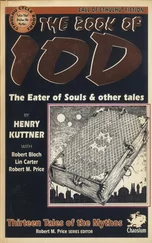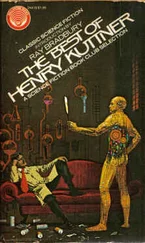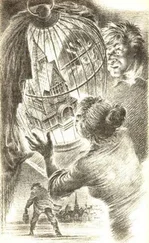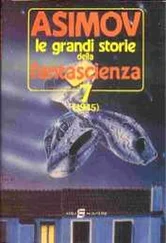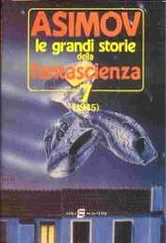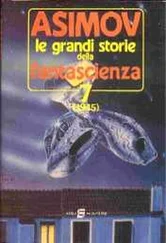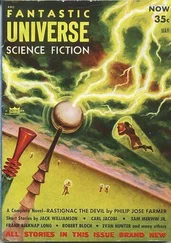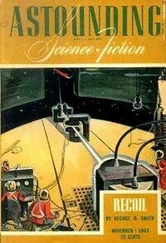Henry Kuttner - Ghost
Здесь есть возможность читать онлайн «Henry Kuttner - Ghost» весь текст электронной книги совершенно бесплатно (целиком полную версию без сокращений). В некоторых случаях можно слушать аудио, скачать через торрент в формате fb2 и присутствует краткое содержание. Жанр: Фантастика и фэнтези, на английском языке. Описание произведения, (предисловие) а так же отзывы посетителей доступны на портале библиотеки ЛибКат.
- Название:Ghost
- Автор:
- Жанр:
- Год:неизвестен
- ISBN:нет данных
- Рейтинг книги:4 / 5. Голосов: 1
-
Избранное:Добавить в избранное
- Отзывы:
-
Ваша оценка:
- 80
- 1
- 2
- 3
- 4
- 5
Ghost: краткое содержание, описание и аннотация
Предлагаем к чтению аннотацию, описание, краткое содержание или предисловие (зависит от того, что написал сам автор книги «Ghost»). Если вы не нашли необходимую информацию о книге — напишите в комментариях, мы постараемся отыскать её.
Ghost — читать онлайн бесплатно полную книгу (весь текст) целиком
Ниже представлен текст книги, разбитый по страницам. Система сохранения места последней прочитанной страницы, позволяет с удобством читать онлайн бесплатно книгу «Ghost», без необходимости каждый раз заново искать на чём Вы остановились. Поставьте закладку, и сможете в любой момент перейти на страницу, на которой закончили чтение.
Интервал:
Закладка:
Crockett laughed shortly. “Those damn machines haven’t got any emotions.”
“None of their own. They can’t create. All their potentialities were built into them. But listen, Crockett – you take a supercomplicated thinking machine, a radioatom brain, and it’s necessarily very sensitive and receptive. It’s got to be. That’s why you can have a thirty-unit hookup here – you’re at the balancing point of the magnetic currents.”
“Well?”
“Bring a magnet near a compass and what happens? The compass works on magnetism. The integrators work on – something else. And they’re delicately balanced – beautifully poised.”
“Are you trying to tell me they’ve gone mad?” Crockett demanded.
“That’s too simple,” Ford told him. “Madness implies flux. There are variable periods. The brains in the integrators are – well, poised, frozen within their fixed limits, irrevocably in their orbits. But they are sensitive to one thing, because they have to be. Their strength is their weakness.”
“So?”
“Did you ever live with a lunatic?” Ford asked. “I’m sure you didn’t. There’s a certain – effect – on sensitive people. The integrators are a damn sight more mentally suggestible than a human being.”
“You’re talking about induced madness,” Crockett said, and Ford nodded in a pleased fashion.
“An induced phase of madness, rather. The integrators can’t follow the madness pattern; they’re not capable of it. They’re simple radioatom brains. But they’re receptive. Take a blank phonograph record and play a tune – cut the wax and you’ll have a disk that will repeat the same thing over and over. Certain parts of the integrators were like blank records. Intangible parts that were the corollary of a finely tuned thinking apparatus. No free will is involved. The abnormally sensitive integrators recorded a mental pattern and are reproducing it. Bronson’s pattern.”
“So,” Crockett said, “the machines have gone nuts.”
“No. Lunacy implies consciousness of self. The integrators record and repeat. Which is why six operators had to leave this station.”
“Well,” Crockett said, “so am I. Before I go crazy, too. It’s – rather nasty.”
“What’s it like?”
“I’d kill myself if it weren’t too much trouble,” the Irishman said succinctly.
Ford took out a celoflex notebook and spun the wheel. “I’ve a case history of Bronson here. D’you know anything about types of insanity?”
“Not much. Bronson – I used to know him. Sometimes he’d be way down in the dumps, and then again he’d be the life of the party.”
“Did he ever mention suicide?”
“Not that I know of.”
Ford nodded. “If he’d talked about it, he never would have done it. He was that type. A manic-depressive, moods of deep depression alternating with periods of elation. Early in the history of psychiatry, patients were classed in two groups: paranoia or dementia praecox. But that didn’t work. There was no line of demarcation; the types overlapped. Nowadays we have manic-depressive and schizophrenic. Schizoids can’t be cured; the other can. You, Mr. Crockett, are a manic-depressive type, easily influenced.”
“Yeah? That doesn’t mean I’m crazy, though.”
Ford grinned. “Scarcely. Like everyone else, you trend in a certain direction. If you ever became insane, you would be a manic-depressive. While I would be a schizophrenic, for I’m a schizoid type. Some psychologists are; it’s the outgrowth of a compensated complex, socially channelled.”
“You mean –”
The doctor went on; he had a purpose in explaining these matters to Crockett. Complete understanding is part of the therapy.
“Put it this way. Manic-depressives are fairly simple cases; they swing from elation to depression – a big swing, unlike the steady, quick pulse of a schizoid graph. It covers days, weeks, or months. When a manic-depressive type goes over the border, his worst period is on the descending curve – the downbeat. He sits and does nothing. He’s the most acutely miserable person on earth – sometimes so unhappy he even enjoys it. Not till the upcurve is reached does he change from passive to active. That’s when he breaks chairs and requires a strait jacket.”
Crockett was interested now. He was applying Ford’s words to himself, which was the normal reaction.
“The schizoid, on the other hand,” Ford continued, “has no such simple prognosis. Anything can happen. You get the split personality, the mother fixations, and the complexes – Oedipus, return to childhood, persecution, the king complex – an infinite variety, almost. A schizoid is incurable – but, luckily, a manic-depressive isn’t. Our ghost here is manic-depressive.”
The Irishman had lost some of his ruddy colour. “I’m beginning to get the idea.”
Ford nodded. “Bronson went insane here. The integrators were profoundly receptive. He killed himself on the downbeat of his manic-depressive curve, that period of intolerable depression, and the mental explosion – the sheer concentration of Bronson’s madness – impressed itself on the radioatom brains of the integrators. The phonograph record, remember. The electrical impulses from those brains keep sending out that pattern – the downbeat. And the integrators are so powerful that anyone in the station can’t help receiving the impressions.”
Crockett gulped and drank cold coffee. “My God! That’s – horrible!”
“It’s a ghost,” Ford said. “A perfectly logical ghost, the inevitable result of supersensitive thinking mechanisms. And you can’t use occupational therapy on an integrator.”
“Cigarette? Hm-m-m.” Crockett puffed smoke and scowled. “You’ve convinced me of one thing, doctor. I’m going to get out of here.”
Ford patted the air. “If my theory is correct, there’s a possible cure – by induction.”
“Eh?”
“Bronson could have been cured if he’d had treatment in time. There are therapies. Now” – Ford touched his notebook – “I have built up a complete picture of Bronson’s psychology. I have also located a manic-depressive who is almost a duplicate of Bronson – a very similar case history, background and character. A sick magnet can be cured by demagnetisation.”
“Meanwhile,” Crockett said, with a relapse into morbidity, “we have a ghost.”
Nevertheless he became interested in Ford’s curious theories and the man’s therapies. This calm acceptance of superstitious legend – and proof! – had a fascination for the big Irishman. In Crockett’s blood ran the heritage of his Celtic forebears, a mysticism tempered with a hardened toughness. He had lately found the station’s atmosphere almost unendurable. Now –
The station was a self-contained unit, so that only one operator was necessary. The integrators themselves were like sealed lubrication joints; once built, they were perfect of their type, and required no repairs. Apparently nothing could go wrong with them – except, of course, induced psychic crack-up. And even that did not effect their efficiency. The integrators continued to solve abstruse problems, and the answers were always right. A human brain would have gone completely haywire, but the radioatom brains simply fixed their manic-depressive downbeat pattern and continued to broadcast it – distressingly.
There were shadows in the station. After a few days Dr. Ford noticed those intangible, weary shadows that, vampiric, drew the life and the energy from everything. The sphere of influence extended beyond the station itself. Occasionally Crockett went topside and, muffled in his heat-unit parka, went off on dangerous hikes. He drove himself to the limits of exhaustion as though hoping to outpace the monstrous depression that crouched under the ice.
Читать дальшеИнтервал:
Закладка:
Похожие книги на «Ghost»
Представляем Вашему вниманию похожие книги на «Ghost» списком для выбора. Мы отобрали схожую по названию и смыслу литературу в надежде предоставить читателям больше вариантов отыскать новые, интересные, ещё непрочитанные произведения.
Обсуждение, отзывы о книге «Ghost» и просто собственные мнения читателей. Оставьте ваши комментарии, напишите, что Вы думаете о произведении, его смысле или главных героях. Укажите что конкретно понравилось, а что нет, и почему Вы так считаете.

